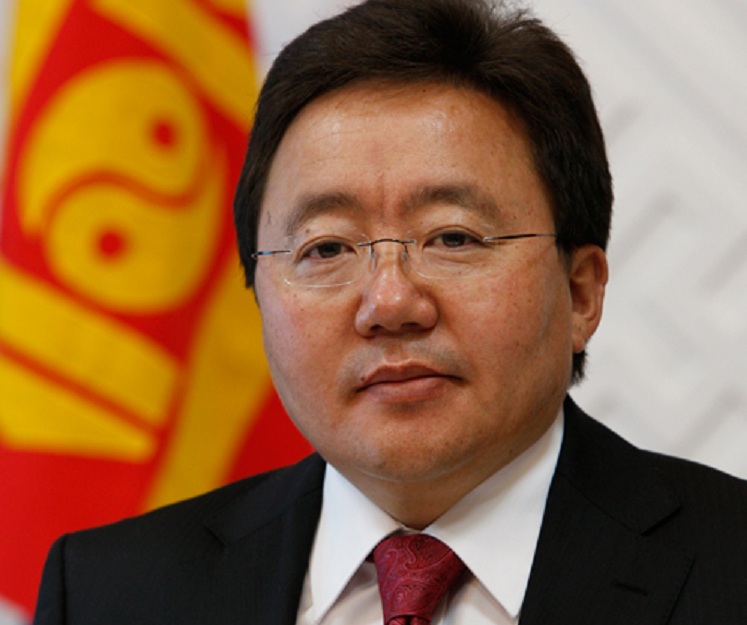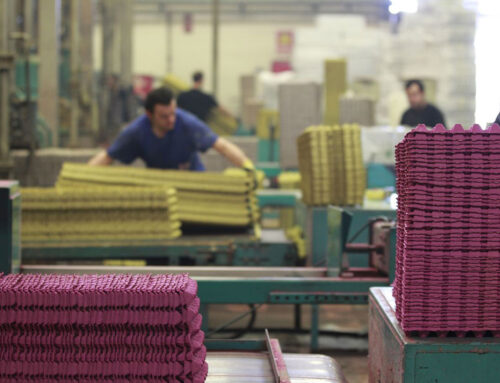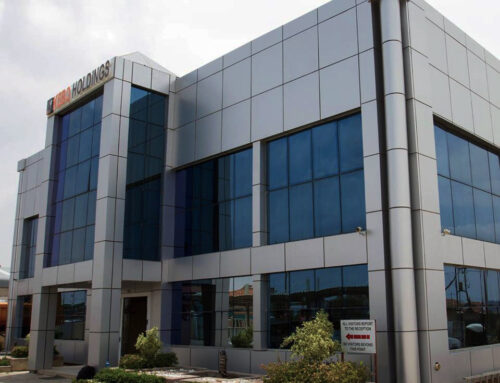
Tsakhiagiin Elbegdorj, President of Mongolia, is committed to improving the quality of life of the Mongolian people while also developing a strong, democratic, free-market economy. The president is known for his support for freedom, responsible government and basic human rights.
The president was born in Zereg Sum, in Mongolia’s Khovd province, on March 8, 1963. He and his wife Bolormaa Khadjidsuren have five children and are foster parents to 20 orphans. President Elbegdorj holds a Master of Public Administration degree from Harvard University’s John F. Kennedy School of Government and a Bachelor’s Degree in Journalism from Land Forces Military Academy, Lviv, in the former USSR.
In a speech he gave in Myanmar recently, President Elbegdorj commented, “Mongolia is a country respecting human rights and freedoms, upholding the rule of law and pursuing open policies. Mongolia holds dear the fundamental human rights—freedom of expression, right to assembly and the right to live by his or her own choice. I believe in the power of freedom. Freedom is an asset bestowed upon every single man and woman. Freedom enables every human to discover and realize his or her opportunities and chances for development. This leads a human society to progress and prosperity. Free people look for solutions in themselves. And those without freedom search for the sources of their miseries from outside. Mongols say, ‘Better to live by your own choice however bitter it is, than to live by another’s choice, however sweet’.”
In 2011, when Mongolia assumed the Chairmanship of the Community for Democracies, President Elbegdorj said, “God has planted in every heart the desire to live free. Even if tyranny crushed that desire, that desire will rise again. In the mountains of Afghanistan, in the sandy homes of the Middle East, in the streets of Havana, in the jungles of Burma, in the steppes of Asia and Africa, there are many people who are still dreaming of greater freedom and peace. I hope that dream will come true and we will help them make it happen.” The President was awarded the New York Democracy Forum Presidential Medal by the National Endowment for Democracy in 2011.
Long history of government service
Tsakhiagiin Elbegdorj has a long history of service to his country. In 1990, he led the peaceful democratic revolution that ended 70 years of communist rule in Mongolia. He was elected a member of parliament in Mongolia’s first free elections and was one of the members involved in drafting Mongolia’s first post-communist constitution.
Before he was elected president in May 2009, Tsakhiagiin Elbegdorj served two terms as his country’s Prime Minister and was Deputy Speaker and Majority Leader in Mongolia’s Parliament. Criticising the Soviet Union’s KGB system in 1994, he was forced to resign his post as a member of parliament. As chairman of the Democratic Party, he led the party to its first victory in parliamentary elections in 1996. As Majority Leader of Parliament between 1996 and 2000, he launched fundamental social and economic reforms through which a free-market system and new democratic institutions replaced the old communist structures.
In 1998, at age 35, Tsakhiagiin Elbegdorj became the youngest Prime Minister in Mongolia’s history. As Prime Minister, he initiated land reforms and a new law guaranteeing freedom of the press as well as reforms of the financial sector. He also continued his fight against corruption and, as Chairman of the Democratic party from 2006 to 2008, he introduced a flat-tax system known as “Four TENs” (10% corporate income, 10% individual income, 10% VAT and 10% social-insurance contributions).
The president’s priorities are to promote the rule of law, foster social justice, fight poverty, combat corruption and support direct participatory democracy. Born into a traditional nomadic family, he is also a strong advocate for environmental conservation and has been awarded the “Champion of the Earth” award from the United Nations Environment Programme (UNEP).
President Elbegdorj implemented Mongolia’s first comprehensive judicial reform in 2011, which ensures open, fair and transparent trials and promotes the role of citizens in judicial procedures. As the chairman of the Community of Democracies, President Elbegdorj has launched a number of initiatives, including “Zero Tolerance for Corruption” and “Education for Democracy”.
As part of his effort to position Mongolia as a force for peace and democracy in the region, President Elbegdorj established the “Asian Partnership for Democracy” initiative. Furthermore, as part of the Community of Democracies initiative, the president has developed a special agenda on strengthening civil society and advocating women’s rights, particularly their participation in all levels of government and social institutions. He also strongly supports international exchanges in education, for example through Mongolia’s participation in the EU programmes “Erasmus for All” and “Marie Sklodowska-Curie”. President Elbegdorj established the Democratic Transition Assistance Foundation of Mongolia in 2012 to support democratic transitions in Kyrgyzstan and Afghanistan as well as economic reforms in countries such as North Korea, Myanmar and others.
Strong private sector and free-market economy
The president has long promoted a free-market economy and strong private sector in Mongolia. In 1991, he founded and led Mongolia’s first Entrepreneurs Association, which helped to privatise livestock on socialist collective farms and offer the animals free to their herders. This livestock was the first private property for almost half of Mongolia’s total population. Since 1992 President Elbegdorj has served as the Permanent Member of the Steering Council of the Young Leader Foundation and since 2003 he has been the Honorary President of the Mongolian Democratic Union.
A recent initiative for the president is the Smart Government project, a reform measure for the public sector which the president presented to parliament in November 2013. The measure, approved by parliament on December 13, 2013, aims to build a modern and competitive government for Mongolia by making sure that democratic, free-market principles are upheld; ensuring the integrity and cohesion of state policies and actions; instituting accountability mechanisms at every level of the government; improving the capacities and efficiency of public services; eliminating government participation in business activities; keeping political programmes independent from business influences; intensifying the fight against corruption; supporting domestic industries; securing property rights and supporting the private sector; creating government structures based on rule of law; honouring contracts; supporting direct democracy, the sovereignty of local governments and local development funds; setting long-term national development strategies; improving election legislation; and implementing new ICT systems in government.
Tsakhiagiin Elbegdorj has been praised by government and private-sector leaders throughout the world. In November 2013, Jose Manuel Barroso, President of the European Commission, visited Mongolia and held talks with the president and with Prime Minister Noroviin Altankhuyag. Both sides agreed that 2013 was an important year in the development of Mongolia-EU relations with the signature of the Partnership and Cooperation Agreement in April and various high-level exchanges concerning trade, development cooperation, agriculture, research and innovation, and political dialogue.
The president noted that Mongolia seeks Market Economy Status with the EU and would like to benefit from the new GSP+ scheme. Jose Manuel Barroso expressed the EU’s willingness to continue to provide support for Mongolia’s economic reforms and noted that the EU’s development assistance for Mongolia would double during the period 2014-2020, a strong sign of confidence in President Tsakhiagiin Elbegdorj and his administration.




